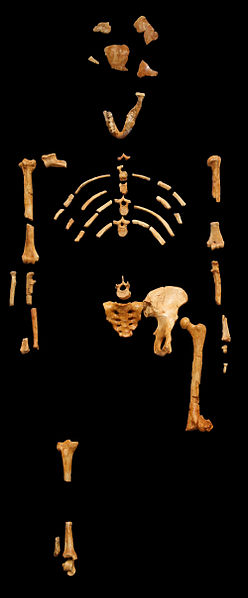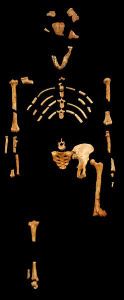Perhaps there will come a time, if human beings survive long enough to evolve, when Man will cease to look to the ocean for a biological trace-back. Machines will fixate on the year they were born in search of a purpose for arriving. New systems for finding things out will emerge out of self-aware non-humans asking, yet again, what and why am I?
Technology and man thread the wire together– an astonishing sight to see. Ever- morphing is technology into the lives of the beings that conceived it. Man has risen from 17th century self-computing to the 21st century electronic computer in minimal time– today Man is stepping into the age of computer integration. Our creation of intelligent systems is changing the way we humans function as a species, much like the use of stone tools when they emerged on scene some 2+ million years ago.
The brain is now, and forever-more co-dependent on the internet. Personality is now a unique duality of virtual crafting and real-time behavior. Information is primarily sought through the web, and a lapse in connection to the virtual world would most likely reap instantaneous panic. Perhaps millions would feel a loss of sense of self, as well as a loss of virtual relationships and networks if unable to sync. Is the stage for Man’s transcendence into non-existence set? Or are we cognizant enough to avoid this possibility?
The rise of 3-D printing systems will revolutionize the world in coming centuries, perhaps making available, working organs that will allow Man to become indestructible. Will the tech revolution bring man the immortality long sought after? Or will we, despite our best efforts, voluntarily submit to extinction? Or might there be a medium, a sort of Goldilocks Zone where humans and machines coexist for a greater purpose?
Ponder the many evolutionary steps we humans have forgotten in the wake of our existence. It is quite difficult to remember the Maya, and much less Lucy— they remain fragments of time– largely forgotten. Will humans become another fragment in space and time?
If Technoids came to be, perhaps they would trump the civilization of Huxley’s Brave New World–– developed might be a highly programmed enterprise, perhaps one with its own anarchists willing and ready to initiate a renaissance of early cell-formation, reproduction and cave art. If ever a time like this arrived, will humans be lone ancestors in the cosmic soup of arrivals and departures, or will they eventually have no choice but to merge and be forgotten?
Perhaps by the year 3, 500, the creation of electronic devices renovated by nano technology for implant use, will conduct new pulses of electrical charges in our bodies, increasing the human electrical output 3 fold, allowing new circuits to evolve within the nervous system. And perhaps by the year 15,000, language might be a kind of silent vision taking the behavior and form of imagination– transporting from one receiving system to another, telepathically, and with ease– the markings of a highly evolved system of receptors and mirror-neurons. Could this be it? Will our evolution be that of a morphing techno- infused mimic octopus?
Friedrich Nietzsche’s Will to Power describes the human potential as a matter of will. Will the will of the human being, in a struggle for its own survival, outweigh the dangers of a possible Technoid revolution?
Carl Sagan once mentioned:
We live in a society exquisitely dependent on science and technology, in which hardly anyone knows anything about science and technology.
Unfortunately, Carl Sagan’s statement still rings true today. In an ever-so silent and time-lapse way, we humans are steadily becoming something very few can comprehend– we are like clouds drifting in the sky, silently merging from one form to the next. Will our choices, faced with such a reality, be severely limited with time?
Will our lack of understanding of science and technology aid in our extinction? Is it possible to be cognizant of something, and anticipate its moves without truly understanding it?
Will technological know-how and longevity improve the quality of lives-to-be, or cheapen the art of existence? And yet, by the time there is an answer to such a question, the question would have morphed– and the answer? It would cease to matter.
Greater effort is needed to remind humanity of what it once was, in order to inform its decision on where it would like to be. It is equally important to reflect on what we are now, as much as it is to reflect on what we would like to one day become.
The way might be paved, but there is room for diversion.
Perhaps more important than any supposition herein, is to own the responsibility to be ever-so cognizant of our possibilities, intentions, and motivations, and to understand science and technology, so that we may empower our decisions and remain part of the process– part of the committee that decides where the human species is headed.

